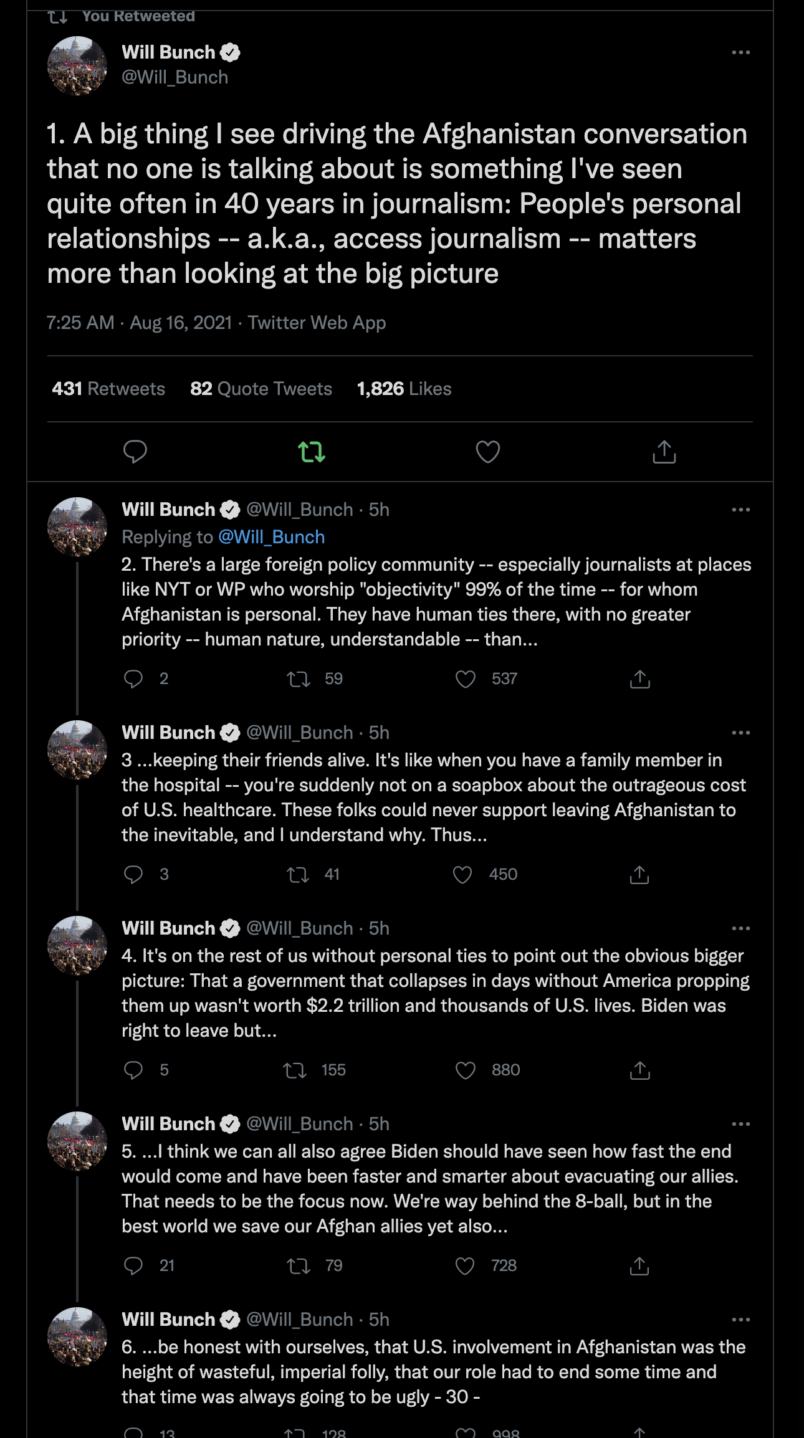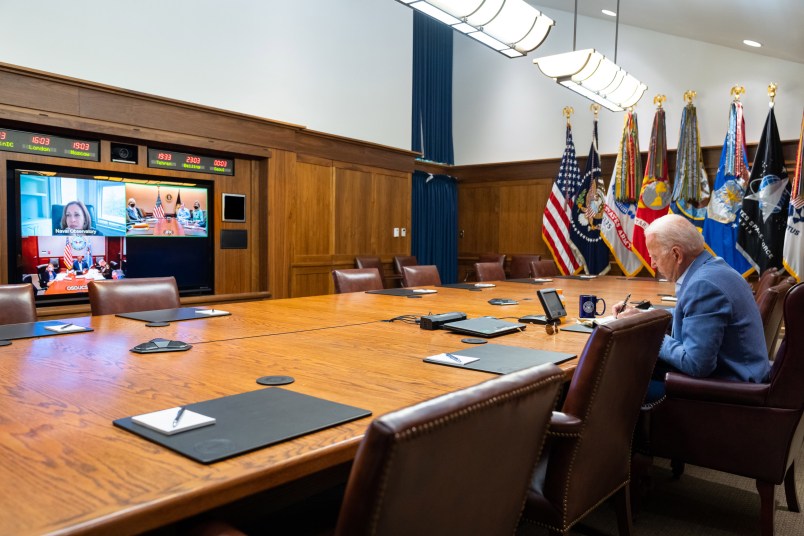If you weren’t around over the weekend I did a series of posts on the unfolding situation in Afghanistan. In succession, “A Few Thoughts on Afghanistan,” “Vindication and the Fall of Kabul,” “After Sunday It’s Even More Clear Biden Was Right.” The titles give you the gist of my views: for all the chaos and horror, the rapidity of the collapse not only of the Afghan military but the Afghan state itself made me even more convinced the decision to leave was correct and more impressed that Biden had the courage to do it.
Biden is speaking to the American public this afternoon about the unfolding situation. It is the correct decision to do so. I think the entirety of what he needs to do is not second-guess the decision or chase after the emotions or hyperbole of the moment. The most important reason not to do that is that the decision was and is the correct one. But equivocation signals weakness. At a moment of uncertainty and chaotic images, the most important thing a leader can do is to be clear that he has a plan, that it is the right plan, and that because it is the right plan he will stick to that plan regardless of the political consequences and even if it is painful to do so.
That is the right thing to do. It will also help him navigate the domestic political storm because I think the great majority of the public agrees with the decision to leave Afghanistan.
Two additional points.
I’ve been struck in reading news commentary over the last 48 hours how much the senior/commentatorish foreign policy reporters for The New York Times are wedded to what we might call a Davos/CFR consensus on foreign policy questions. It’s as much the Post as the Times and applies to that whole milieu. I first started thinking about this when I saw this piece by Steven Erlanger two days ago. All filled with chin-scratching comments about the loss of “credibility,” American retreat from the world, etc. You could read the piece and have little sense that things weren’t going great in Afghanistan or that really any of the last 20 years had even happened. If the premise is that this decision shows America won’t stick by its allies or lacks the gumption to see a mission through, one must at least contend with the fact that the US has been in Afghanistan longer than Great Britain and twice as long as the Soviet Union – both of which were states that at the time bordered on Afghanistan.
Most tellingly the commentary – which is really what these pieces are – was entirely divorced from how manifestly public opinion in the United States has turned against this mission or perhaps better to say been so indifferent to it. Another comparable piece came overnight from the Times’ David Sanger. These points don’t mean these perspectives are necessarily wrong but they are certainly cocooned from the contrary perspectives which have actually driven the decision.
In a sense, who can be surprised? You might say this kind of outlook is almost a cliche from the Times. But again, very revealing. Elite, DC-based political journalism is deeply wedded to a pro-war, pro-perpetual counter-insurgency mindset and set of priorities. There are many reasons for this and in the coming days and weeks it’s worth considering why.
The other comes from Will Bunch of the Philadelphia Inquirer. It’s one of the most insightful things I’ve seen in the last three days of commentary. I’m going to post the entire Twitter thread.

Some of this is about “access journalism.” But I think it also captures a key human dimension. If you know people and care about people who are in danger that will shape your perspective pretty profoundly. That’s no more than human nature. That doesn’t validate a lot of reporting, which I think has been quite bad. But I don’t think we can fully understand it absent that insight.






